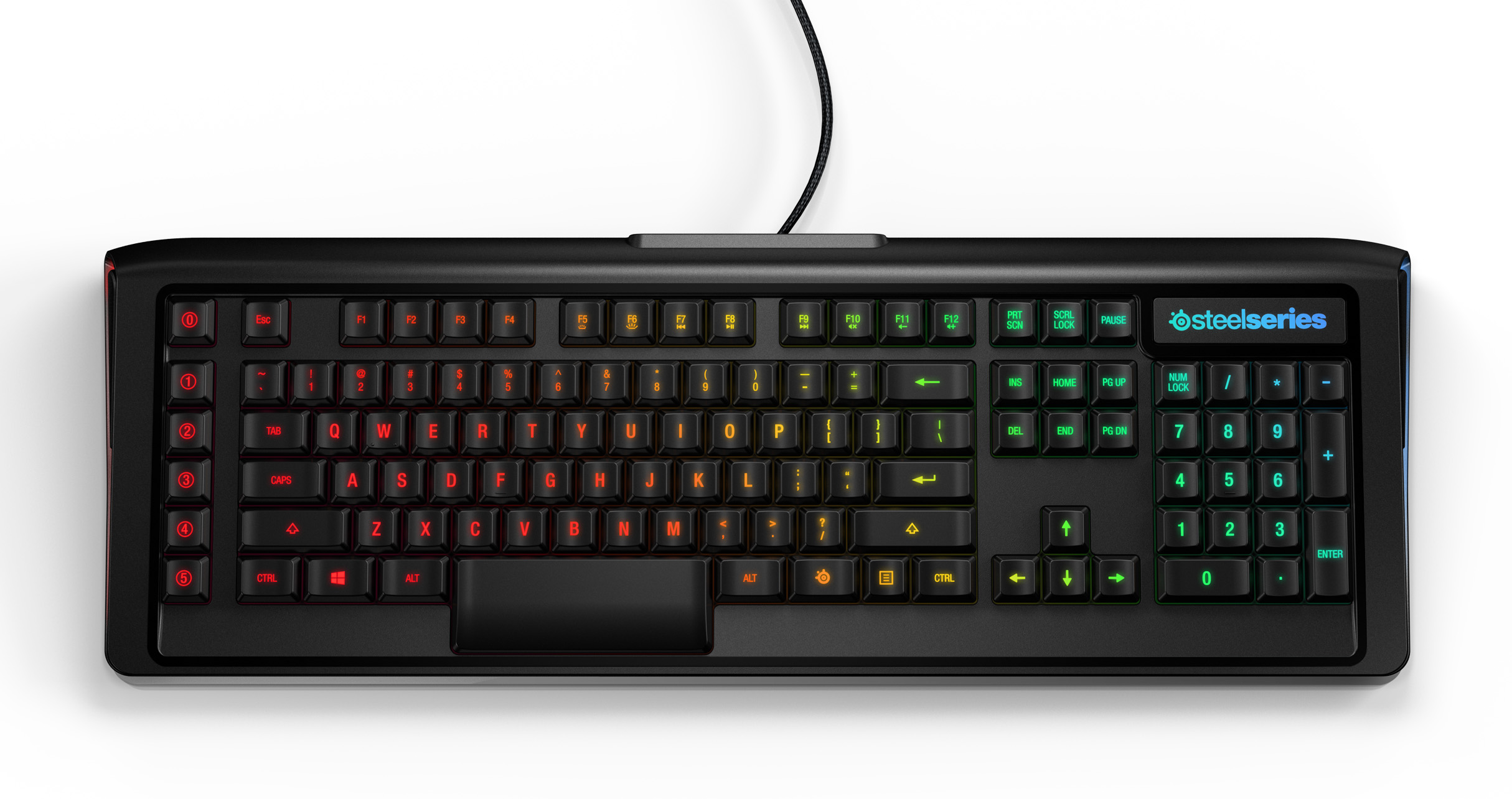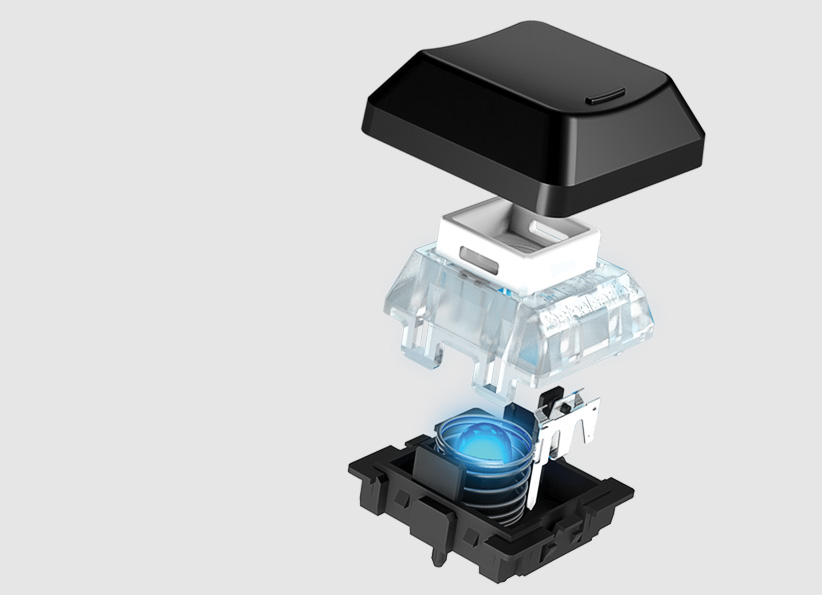
Most PC gamers will attest to the greatness of mechanical keyboards, but some do prefer the softer feel of traditional membrane-based keyboards. SteelSeries caters to both, with the G-LINE featuring mechanical Cherry MX switches and the APEX line that features membrane keys—but at CES this year, the veteran keyboard company showed off something new: a switch that splits the difference.
SteelSeries has designed a new linear mechanical switch its calling the QS1. At a glance, it's a fairly standard mechanical switch: 3mm travel with 1.5mm actuation point, 45cN force and rated for 60 million actuations. The difference is: the QS1 has the feel of a membrane switch.
For us, that seems to defeat the purpose of a mechanical keyboard. We love that clicky feel and the more forceful feedback of mechanical keys compared to membrane keyboards. But hey, maybe it's great—we'll give any new switch a try.

The QS1 will be showing up in the new APEX M800 keyboard, essentially giving it the strength and durability of a mechanical keyboard with the feel of a traditional membrane set of keys. The M800 has all the standard features you'd expect from a SteelSeries keyboard: macro support, anti-ghosting with 256-key rollover, full RGB LED lighting and per-key programmable lighting effects.
The M800 itself should be available sometime in the next few months, likely at a price point of $199 MSRP, but we wouldn't be surprised to see the QS1 switch make its way into a number of other SteelSeries keyboards in the future as well.
Be sure to check out our list of the best gaming keyboards.
Keep up to date with the most important stories and the best deals, as picked by the PC Gamer team.
As the former head of PC Gamer's hardware coverage, Bo was in charge of helping readers better understand and use PC hardware. He also headed up the buying guides, picking the best peripherals and components to spend your hard-earned money on. He can usually be found playing Overwatch, Apex Legends, or more likely, with his cats. He is now IGN's resident tech editor and PC hardware expert.


